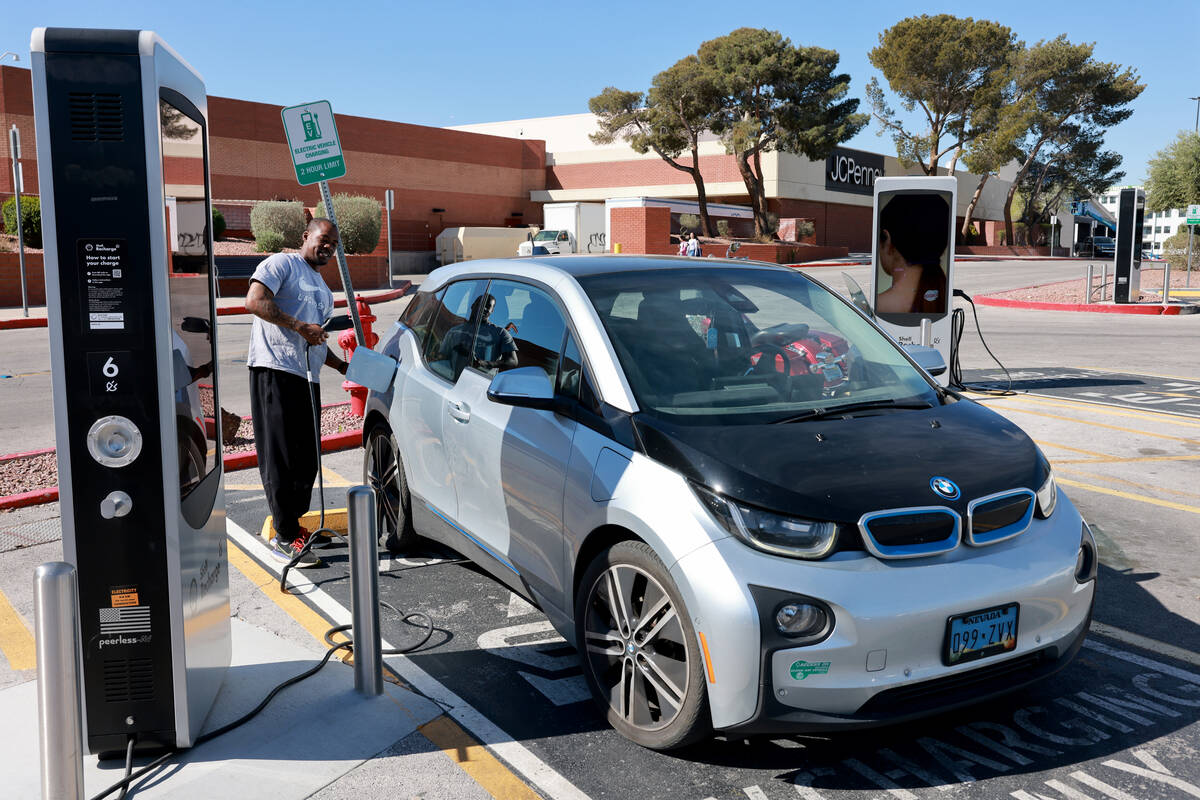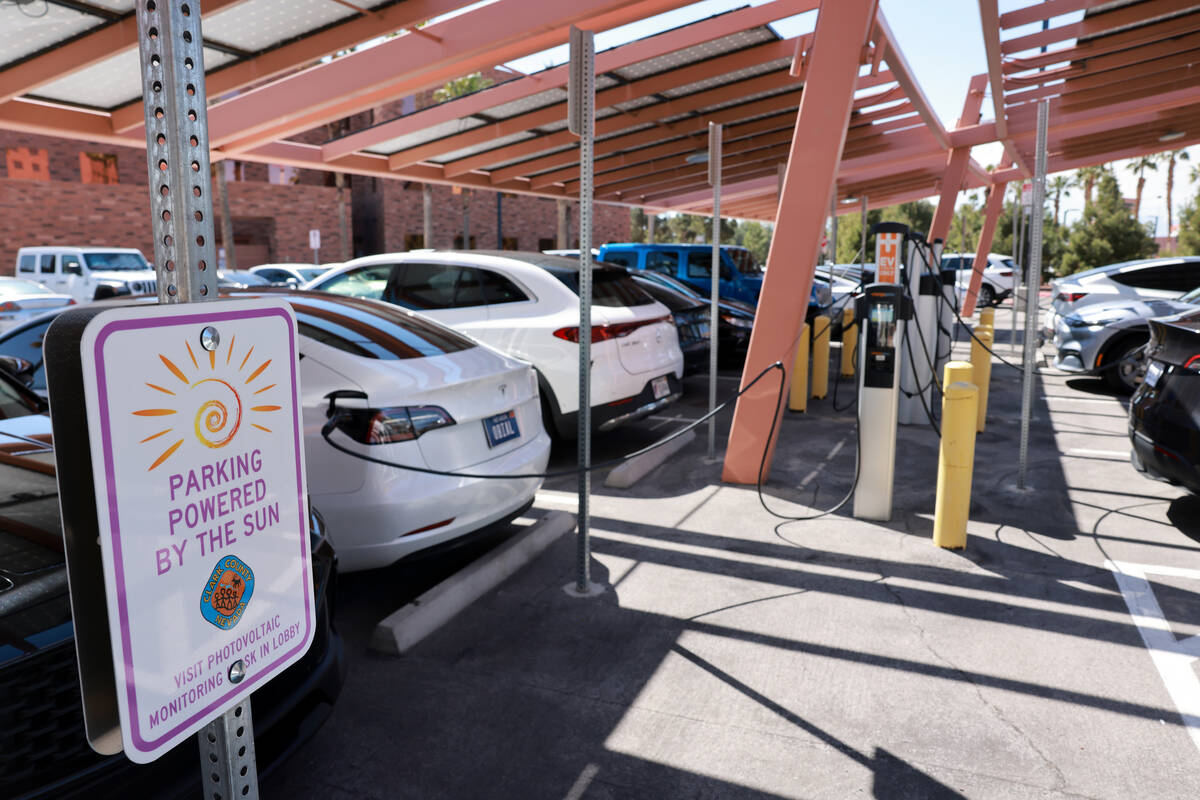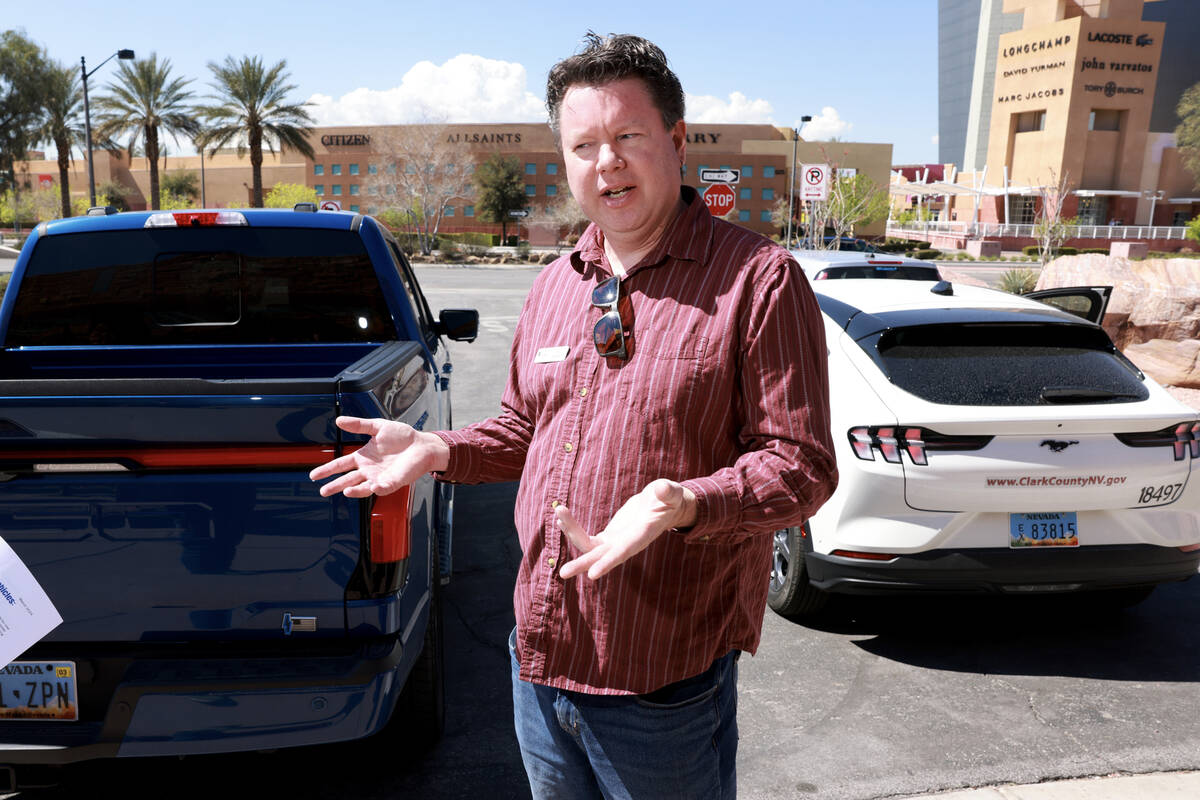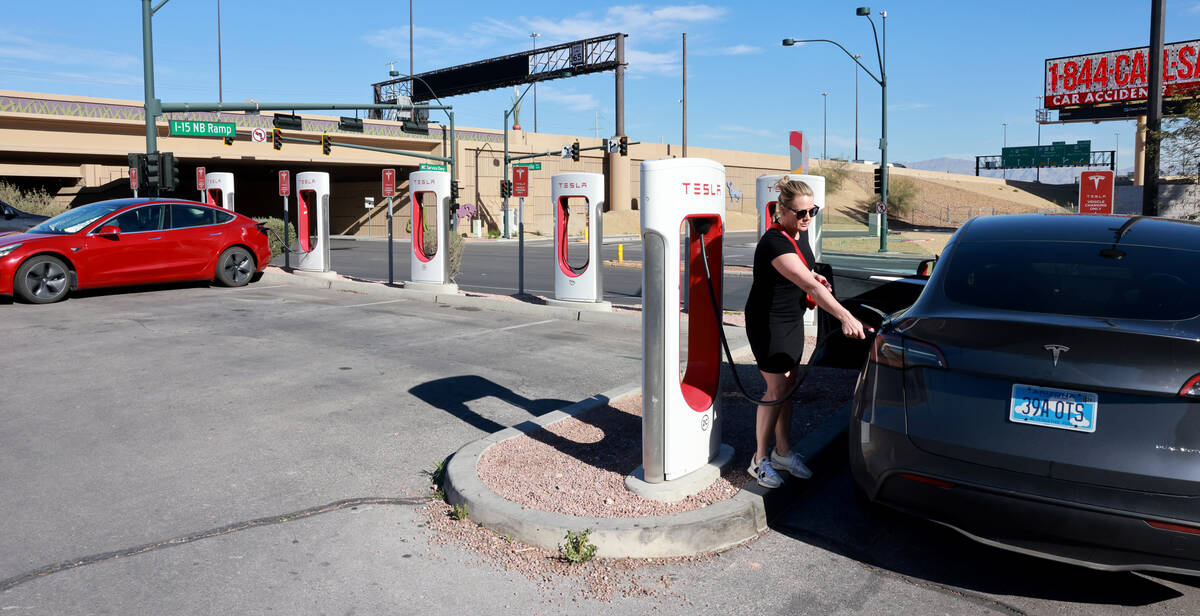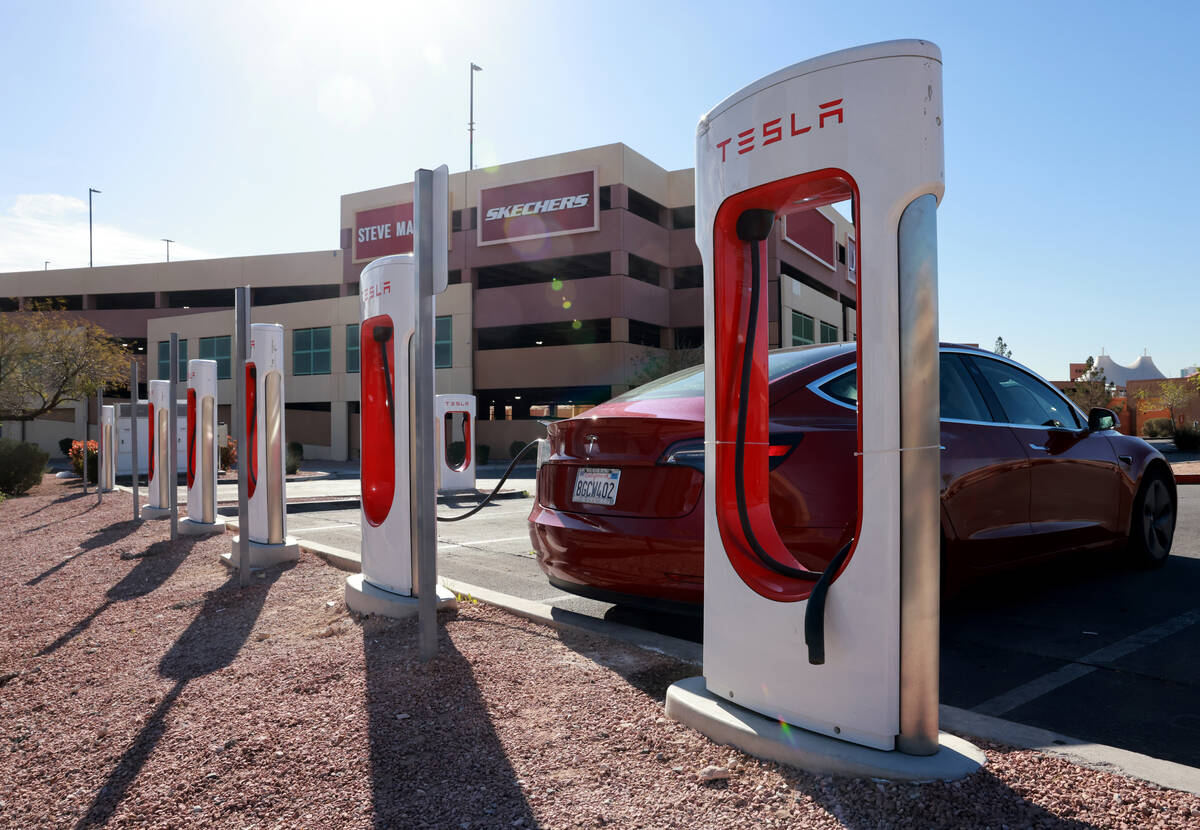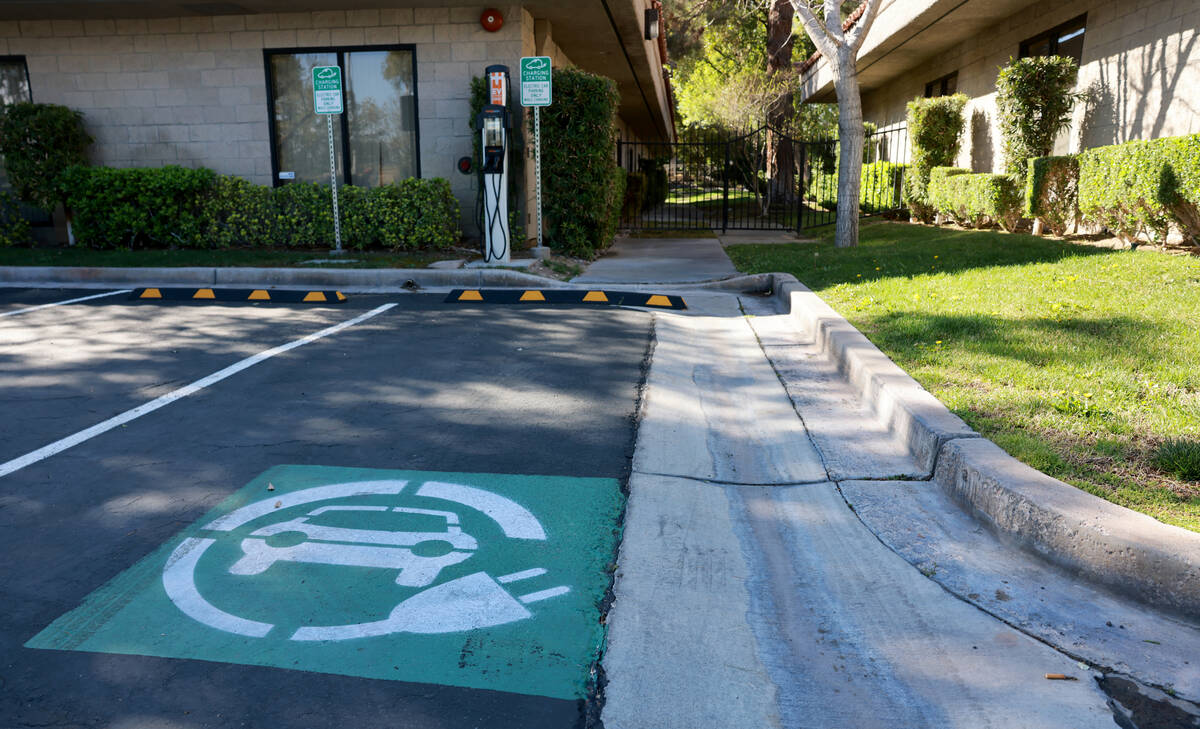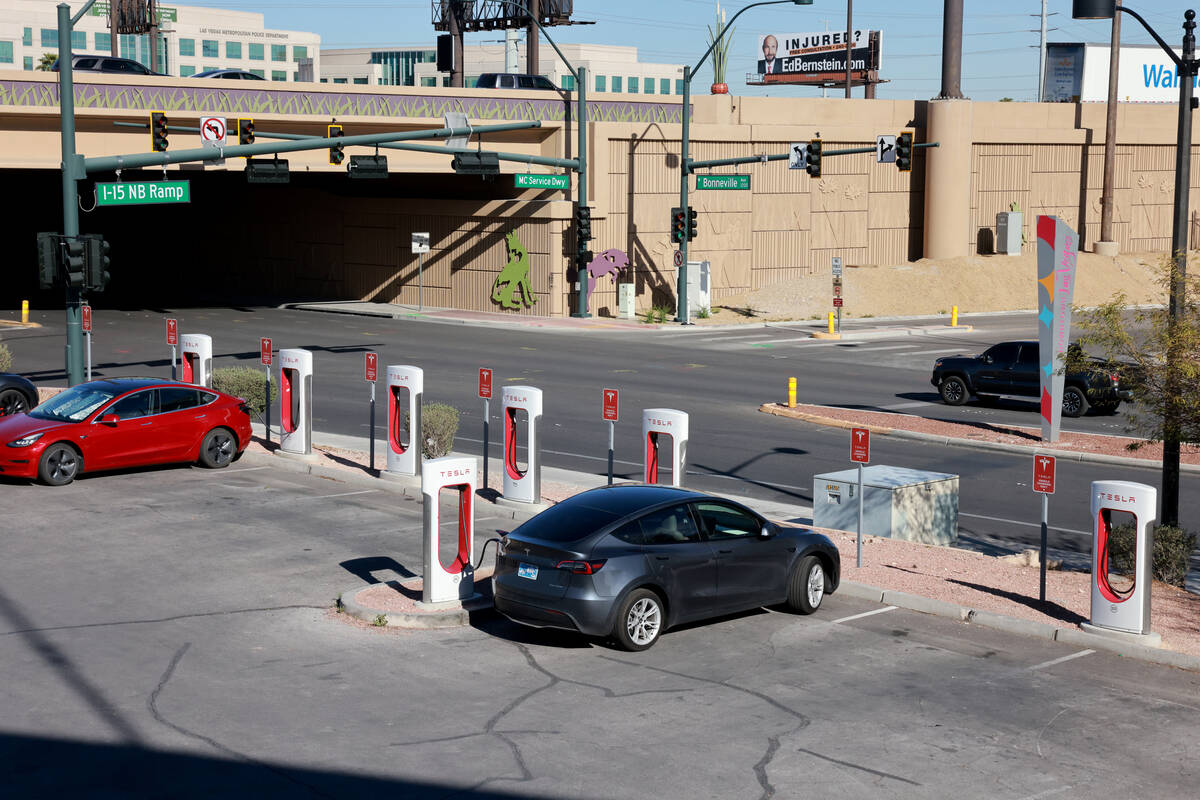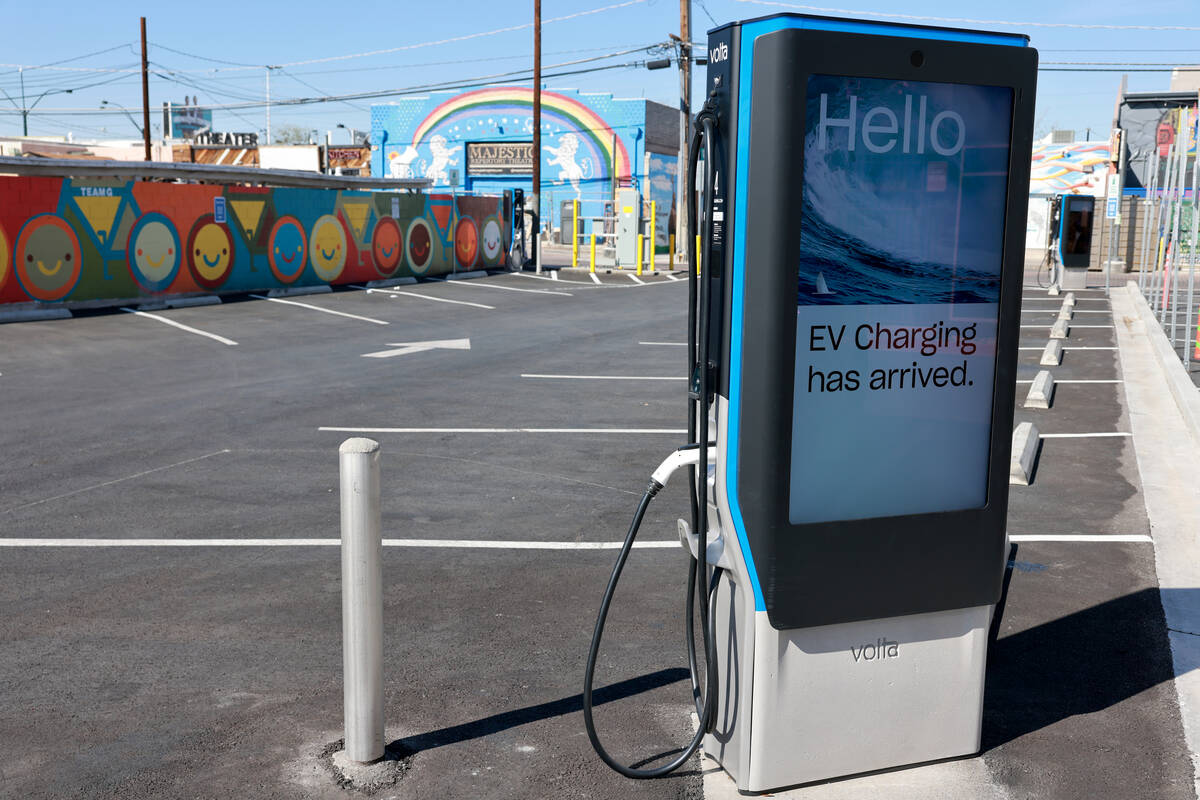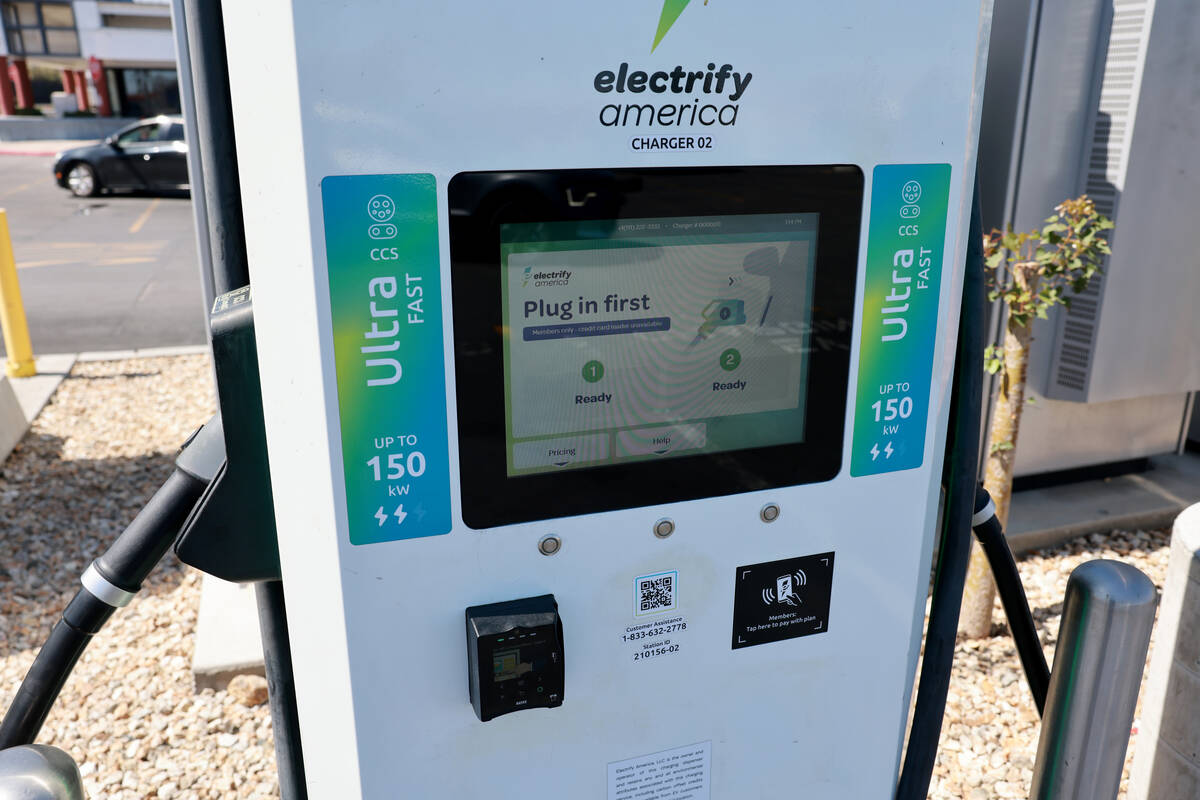Want to drive an electric vehicle across Nevada? Rural charging stations are coming
Paul Bordenkircher knows his electric car is helping the planet. But what was more attractive about buying one is what he says is a well-kept secret — it’s cheap, sensible and easy to maintain.
He bought his used, 2018 Kia Soul two years ago and estimates that he saves about $1,500 a year in gas.
“A cheap gas car isn’t necessarily cheap,” said Bordenkircher, a Nevada Electric Vehicle Association advocate who moonlights as an audio technician at the Wynn Las Vegas. “And I needed something dirt cheap.”
Life as an electric vehicle owner in Nevada has presented difficulties — outside of Las Vegas and Reno, charging stations needed for long drives are hard to come by. Between Nevada’s two major cities, there are more shrubs than people.
An electric vehicle might not have made sense to buy a few years ago, but that could change with federal funding from the Bipartisan Infrastructure Law.
Bordenkircher’s car battery only has a 111-mile range. If he were to drive it to Lake Tahoe, for example, he’d need to stop at least four times — and each charge could take multiple hours, depending on if a station is available at the right moment and how powerful the charger is.
Bold plans, supported through the National Electric Vehicle Infrastructure program, will see 18 new and upgraded stations to improve connectivity in rural Nevada. In general, the Biden administration has made electric vehicles an integral part of its vision for a nationwide transition away from the burning of fossil fuels that climate scientists say are rapidly warming the planet.
Some stations could be open as early as the end of 2024, a Nevada Department of Transportation spokesperson said, but many of the new locations are preliminary and could shift. In some circumstances, a full environmental permitting process may be necessary, especially if construction would require new electric lines.
Before delivering a speech at the Electric Vehicle Charging Summit at The Mirage on Friday, Federal Highway Administrator Shailen Bhatt told the Las Vegas Review-Journal that he’s heartened to see how quickly Nevada is trying to make use of funds to place new stations.
“They are moving at a great pace,” Bhatt said. “We expect to see chargers being deployed this year in Nevada, which is on pace with most of the country.”
Will your car make it?
Not all electric cars are made equal — Las Vegas resident Brad Apelgren’s 2022 Ford F150 Lightning has a 330-mile range. He’s driven it as far as Legoland in Carlsbad, California, and to Phoenix, Arizona.
In Clark County, electric vehicles are much more plausible to own, especially if homeowners charge their cars at home. There are more than 200 charging stations across the valley, and more are coming. Apelgren’s first electric car had an 85-mile range, which he said was more than enough to navigate Las Vegas.
“The valley is big, but you can get around,” Apelgren said.
Some Clark County employees like Olivia Burns, an environmental specialist, get to drive electric vehicles for work.
Her brand-new, 2023 electric Mustang is a welcome upgrade during working hours from her usual ride, a 2008 Kia.
“It drives really smooth — it’s a lot of fun; it’s fast; it’s really quiet,” Burns said. “And then anytime I go back to driving my personal vehicle, I don’t like it at all. It’s noisy, loud and smelly.”
Bordenkircher, of the Nevada Electric Vehicle Association, said the addition of more charging stations ultimately will spark more Nevadans to consider buying electric. There’s no date for when federal funds for stations will expire, but state agencies have signaled that building them is a priority.
“If you live in Ely, you probably don’t want an electric car right now,” Bordenkircher said. “But the infrastructure is being built out rapidly.”
Contact Alan Halaly at ahalaly@reviewjournal.com. Follow @AlanHalaly on X. Review-Journal staff writer Sean Hemmersmeier contributed to this report.



